An Edmonton cultural centre with a prominent bust of a Nazi collaborator and war criminal received over $35,000 from the federal government for a security system to protect it from hate crimes.
The Ukrainian Youth Unity Council, which owns and operates a cultural centre in northeast Edmonton, received the funds from Public Safety Canada’s “Communities at Risk: Security Infrastructure Program” in 2020 for the purpose of installing a security system, including closed-circuit television and an intrusion-detection system.
The funding was first reported by the Progress Report.
The same building features a monument to Roman Shukhevych, which was defaced the week of August 8 with the words “actual Nazi.” The same monument was also defaced in 2019 with the words “Nazi scum.”
In a statement to The Maple, Public Safety Canada spokesperson Magali Deussing said:
“The Ukrainian Youth Unity Complex in Edmonton, Alberta applied under the Security Infrastructure Program in the June 2019 Call for Applications. Upon review of their application it was determined that the organization was an eligible class of recipient under the program’s terms and conditions, and sufficiently demonstrated in their application that their community and project site was at-risk of hate-motivated crime to qualify for funding under the Program.”
However, outside of the defaced monument, it is unclear what crimes, hate-motivated or otherwise, the cultural centre is referring to.
Carolin Maran, communications advisor for the Edmonton Police Service, indicated that while an investigation into the vandalism is ongoing and that the Edmonton Police’s Hate Crimes and Violent Extremism Unit is aware of the incidents, they are not aware of any incidents in which Edmonton’s Ukrainian community has been targeted.
The Edmonton police determined that the 2019 vandalism incident ultimately did not constitute a hate crime, but would not indicate if the same is true of the most recent incident.
Public Safety Canada was also unable to confirm what specific incidents qualified the cultural centre for funding from the Security Infrastructure Program.
Funds from this program are most often used to provide security systems to mosques and synagogues, reflecting the disturbing increases in anti-Semitic and Islamophobic attacks that have occurred in recent years.
Of the 38 organizations that received funding for security systems up to a $50,000 value from Public Safety Canada through the Security Infrastructure Program in 2020, 30 were mosques, synagogues or Jewish or Muslim schools.
Multiple requests for comment from Edmonton Mayor Don Iveson, Alberta Premier Jason Kenney and Alberta NDP Leader Rachel Notley were not returned. Similarly, requests for comment from Canada’s major federal party leaders were also not returned.
Roman Shukhevych is considered a hero among certain members of the Ukrainian ultra-nationalist community, but is considered by scholars to have been a war criminal.
Shukevych was a leader of the Ukrainian Insurgent Army (UPA), the paramilitary wing of the Organization of Ukrainian Nationalists’ Bandera faction, and collaborated with the Nazis during the Second World War.
Scholars believe he is responsible for the deaths of approximately 100,000 people, including Jews, Poles, Belarusians and non-nationalist Ukrainians. Ukrainian ultra-nationalists generally take the view he was a freedom fighter who opportunistically fought against both the Soviet Union and Nazi Germany to secure an independent Ukraine.
Shukhevych has become better known outside of nationalist circles in recent years as post-Soviet Ukrainian politicians elevated wartime leaders of ultra-nationalist factions to the status of national heroes.
Ukrainian nationalism has hit new heights of late, partly inspired by the conflict with Russia, but also having developed in the wake of the Euromaidan protests of 2013-14.
The ultra-nationalist perspective is far from universal in Ukraine, with left-leaning Ukrainians as well as the country’s Jewish community being of the opinion that Shukhevych’s war record of massacres, pogroms and Nazi collaboration far outweigh his contribution to Ukrainian independence.
A high-profile incident occurred in 2007 when then-Ukrainian president Viktor Yushchenko posthumously awarded Shukhevych the title “Hero of Ukraine,” the nation’s highest honour.
The medal was given to Shukhevych’s son Yuriy, the former leader of a far-right militia. A procession that was organized as part of the official ceremony involved far-right demonstrators, and ultimately degenerated into street fights between the ultra-nationalists and elderly Red Army veterans.
Shukhevych has also come up in the context of another highly contentious memorial in Canada: the Memorial to the Victims of Communism, currently being built by the Trudeau administration with $6 million in taxpayer money.
Shukhevych — along with other Nazi collaborators, fascists and Holocaust perpetrators — was included in a list of names to be included on the memorial’s wall of remembrance. While the department of Canadian Heritage has stated that they are currently reviewing the list of names, neither the department, nor the charity responsible for the monument — Tribute to Liberty — indicated that they would return donations made in tribute to Nazi collaborators that have partly funded the construction of the monument.
The presence of the Shukhevych monument at the Edmonton cultural centre has been an issue for several decades, dating back to the centre’s opening in the 1970s. National Jewish organizations are renewing their appeals to have it — as well as a cenotaph dedicated to the veterans of the Waffen-SS 14th Galicia Division, that was also vandalized — removed.
A few days after news broke of the vandalized Nazi monuments in Edmonton, the election posters of two Montreal-area Liberal Party candidates were defaced with anti-Semitic graffiti.
These acts of hate resulted in unanimous and immediate condemnation by federal party leaders, but the presence of monuments dedicated to war criminals and Nazi collaborators in Edmonton didn’t result in any statements at all. Requests for comment on this apparent contradiction were sent to the affected MPs, but there was no reply.
The debate over Shukhevych, the controversial memorial in Ottawa, as well as the equally controversial recognition of Black Ribbon Day in Canada, are part of an effort some scholars and experts describe as Holocaust distortion, particularly when it comes to efforts to link Nazism and Communism as being dictatorships of equally oppressive or destructive magnitude.
Irrespective of the historical record, Canadian politicians of practically all stripes have issued statements on Black Ribbon Day that strongly suggest Nazism and Communism were equally bad, and that the people of Eastern European nations that came under the aegis of the Soviet Union after the Second World War were victims of a “double genocide.”
The “double genocide” theory, widely condemned as ahistorical by Holocaust scholars and historians alike, comes up in the rhetoric surrounding the controversial monuments.
The public conflation of Nazism and Communism is alarming to those combatting resurgent anti-Semitism, like B’nai Brith Canada’s CEO Michael Mostyn, who calls the “double genocide” theory a “re-writing of history.”
“The ‘double genocide’ debate is prompted by a movement in Europe that believes the crimes — morally and ethically — of Nazism and Communism are absolutely equal,” said Mostyn. “We reject this comparison.”
This opinion is shared by former Liberal MP Irwin Cotler, whose letter in support of the Victims of Communism memorial is listed, though not accessible, on the Tribute to Liberty website.
Cotler issued the following statement when asked about the contested commemoration of the Ottawa memorial, in his capacity as head of the Canadian delegation to the International Holocaust Remembrance Alliance, in conjunction with Dr. Kathrin Meyer, the organization’s Secretary General: “The IHRA condemns all attempts to rehabilitate the reputations of individuals who were complicit in the crimes of the Holocaust.”
“In light of rising anti-Semitism and Holocaust distortion, we encourage all countries to address their respective pasts by dealing accurately with the historical record,” the statement continues. “Memorials are responsible for protecting the dignity of the victims. Failure to remember truthfully demeans the living victims and disrespects the dead.”
Taylor C. Noakes is an independent journalist and public historian from Montreal.

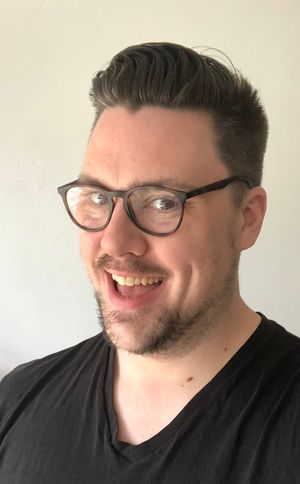
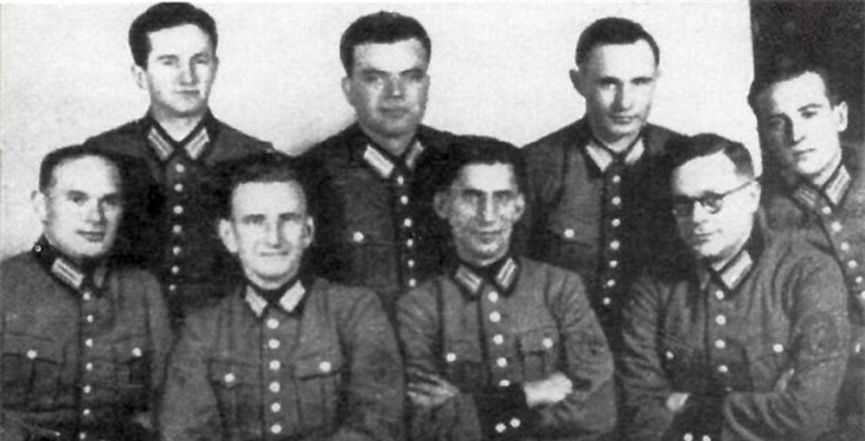
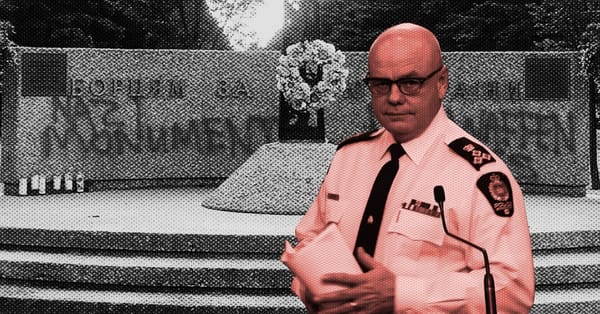
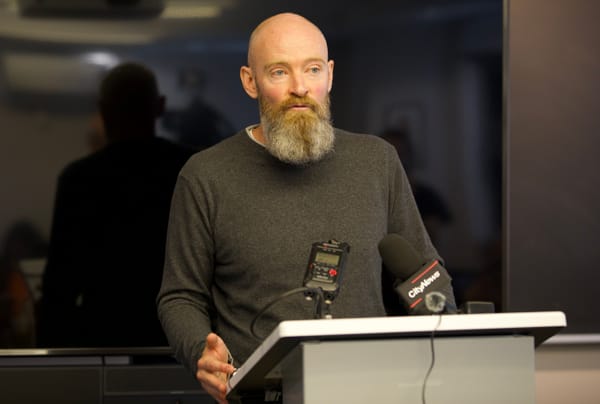

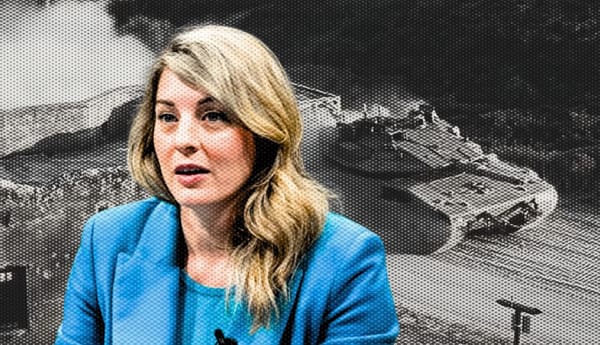
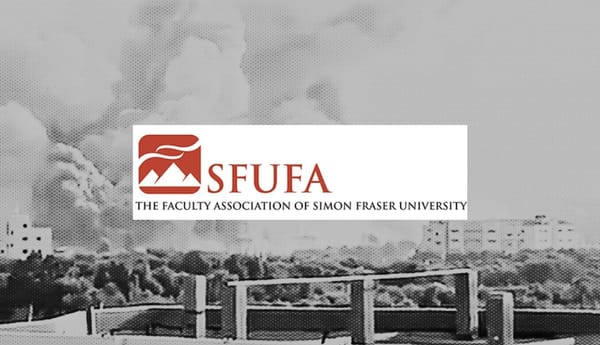
Member discussion